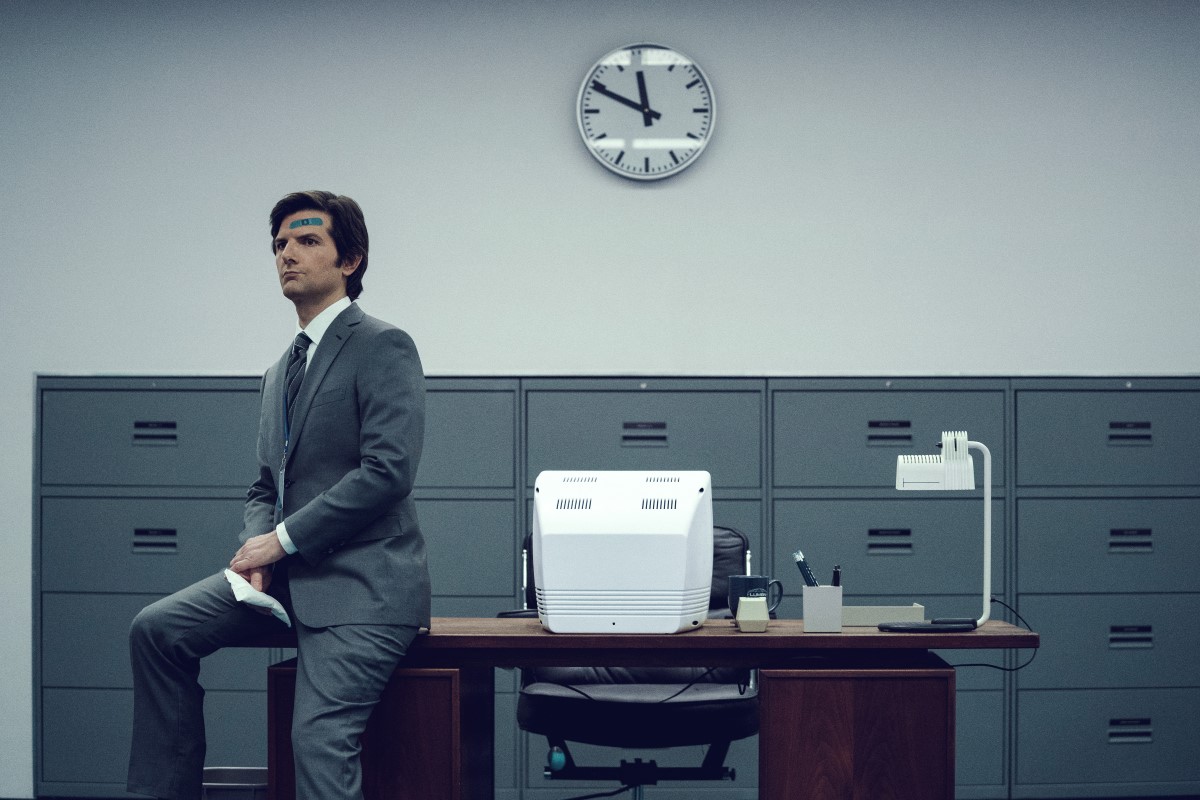Top image: Apple TV+
This review covers the first three episodes of Severance
Severance’s premise is thoroughly dystopian. The show centres around a company with employees who undergo severance—a surgical procedure to separate their work memories from their non-work memories. When they’re at work, they have no recollection of their personal lives, and when they’re not at work, they don’t remember anything that happened in the office.
But I have to admit that deep down, part of me actually wishes I could have undergone the surgical procedure that the characters have gone through. As a self-professed productivity fan, it would be the most efficient, productive way to live my life. No more of having to read productivity books like David Allen’s Getting Things Done or Oliver Burkeman’s Four Thousand Weeks. I could finally relax when I’m supposed to (presumably, I wouldn’t wake up to 4,329 work Whatsapp messages, like a categorically insane ex-boss used to do). And when I’m at work, my thoughts wouldn’t be on what I’ll do during the weekend and which four friends I’ll be asking along to keep within the current Covid-19 limits.
ADVERTISEMENT
Life would be perfect.
A cold, sterile workplace in Severance (Photo: Apple TV+)
But, as the Apple TV+series shows, it would be futile to expect that sort of cold, clinical efficiency that corporations love to foist upon us, because we’re, well, people. We’re social creatures. We’re not wired to be alone. As much as we would like to take the humanity out of the human, that’s just not going to happen.
In Severance, the offices are devoid of any sort of personalisation, with stark white walls and drab decor, in an attempt to milk as much efficiency and presumably reduce distractions while at work. The only personal items on the desk of main character Mark (Adam Scott) are a group photo of his colleagues and a small trinket with a 3D image of his head. After all, if you don’t remember your real family while you’re at work, who else would you frame up in a photograph?
Yet in the absence of any sort of humanisation of the workplace, humanity thrives. Mark is (fairly) good friends with his colleagues, the only people he’s ever known in his work life. He’s even willing to take a bullet for new girl Helly (Britt Lower), even though she’s been a pain in the few days he’s known her.
It’s the human relationships that help him to get through each workday, because otherwise he’d be literally doing abysmal data entry work (in the show, his work involves sifting through numbers and removing the undesirable ones).
Adam Scott as Mark (Photo: Apple TV+)
ADVERTISEMENT
It mirrors how our world increasingly tries to remove the human touch in the name of productivity and efficiency. But it’s futile. And ultimately, it seems to be because of the inciting incident of the show—Mark’s former work bestie Petey (Yul Vazquez) comes looking for him on the outside after ostensibly quitting his job. This leads to some unexpected discoveries and a thrilling rollercoaster ride as we learn more about exactly how dystopian Severance’s world is. And it’s all because of the human relationships that were built at Mark’s workplace.
It reminds us that we need friends at work, and we need a bit of our personal life at work—that’s how we bring what’s special about us to our jobs, right? Although, we don’t quite need our work in our personal lives (but then, that’s not what the show is trying to say).
But there’s no separating work and life into a fine balance that we constantly have to preserve. Our life has to be in our work—after all, isn’t our best work done when we’re motivated by those around us?
So the whole idea of “work-life balance” misses the point, as Severance shows us. It’s the people at a job that matters. There’s the old adage that people don’t leave bad jobs, they leave bad bosses. And it’s not because we’re inefficient or distracted or whatever term the millionaire moguls want to call the working class. It’s because we’re humans.
Harmony (Patricia Arquette) in Severance (Photo: Apple TV+)
The series also makes several pointed observations about work, like how multinational corporations tend to deify their founders (much like a religion) or how massive start-ups function quite a bit like a cult. Or how ridiculous all those team-building exercises are at trying to force people to be friends. But ultimately, it’s about the fact that we need human relationships regardless of whether we’re at work or off it.
Severance is a timely reminder of how pointless it is to depersonalise work in the name of productivity when what really keeps us going is the people we meet in the office. Of course, all this is presented alongside an unfolding mystery about this horribly productive (are they really?) universe. But we’re not too far away from such a reality, and hopefully, Severance serves as a parable about what really matters to people—other people.
Severance
Directors: Ben Stiller and Aoife McArdle
Writers: Mohamad el Masri, Dan Erickson, Wei—Ning Yu, Anna Ouyang Moench, and Andrew Colville
Cast: Adam Scott (Mark Scout), Zach Cherry (Dylan), Britt Lower (Helly), Tramell Tillman (Seth Milchick), John Turturro (Irving), Christopher Walken (Burt), Patricia Arquette (Harmony Cobel/Mrs Selvig), and Yul Vazquez (Petey)
Running Time: 9 episodes of 53—57 minutes
Genres: Drama, Thriller, Psychological Drama
Severance is on Apple TV+.






